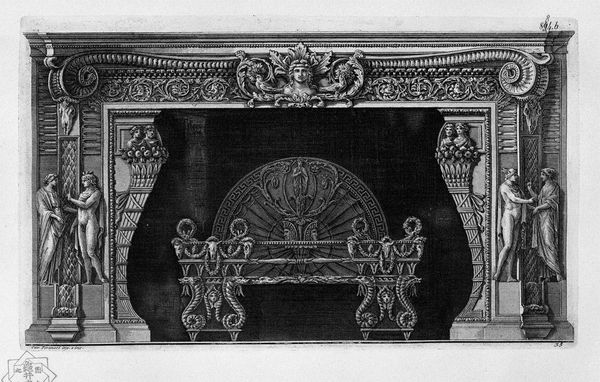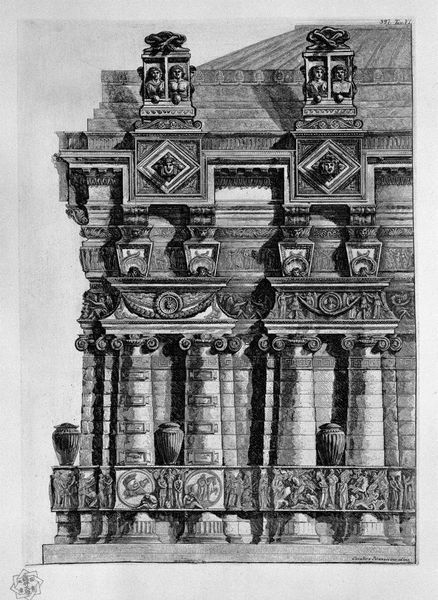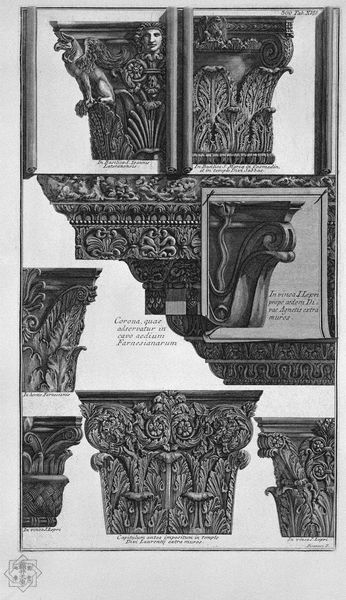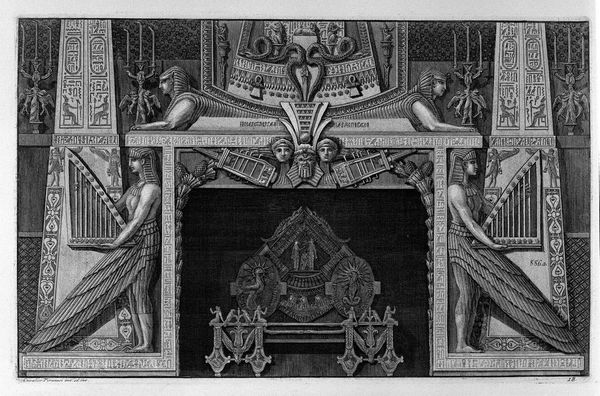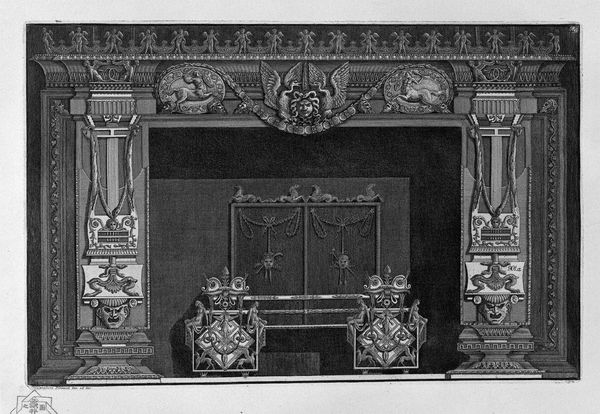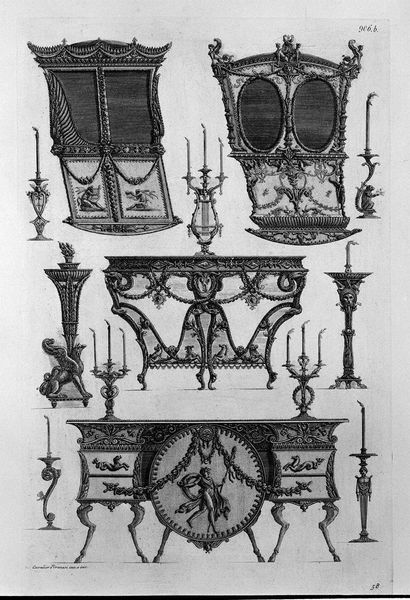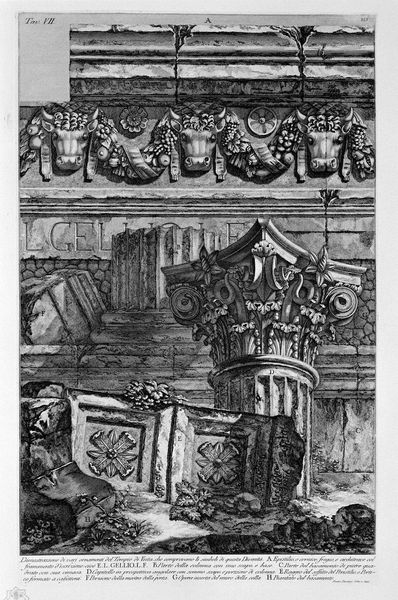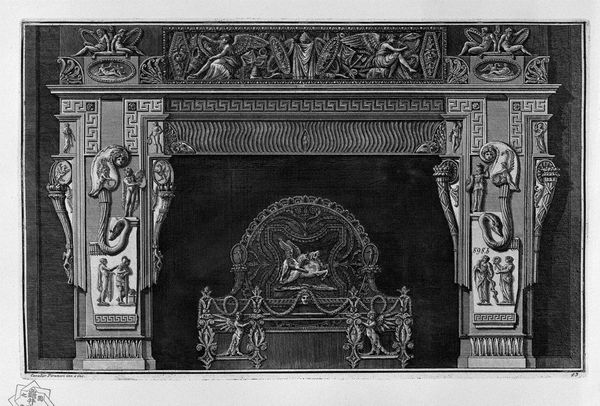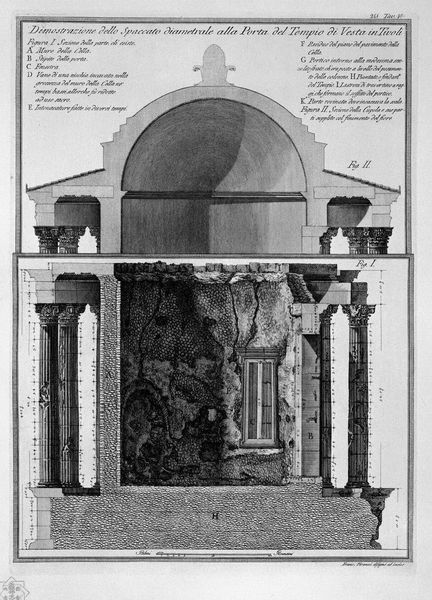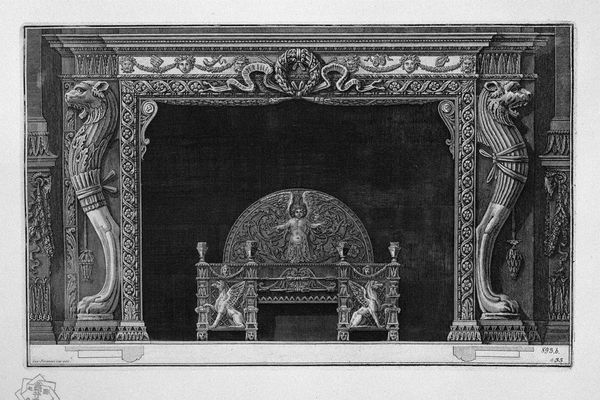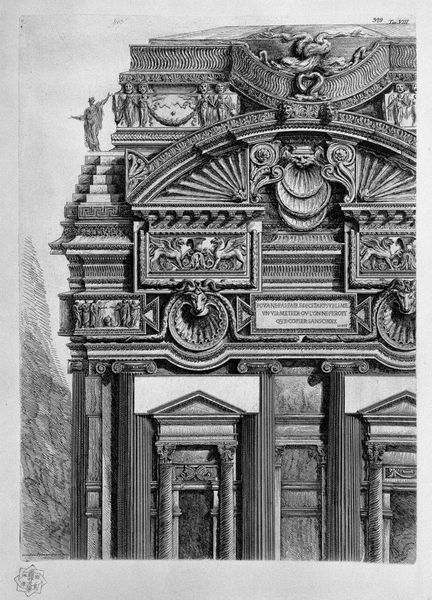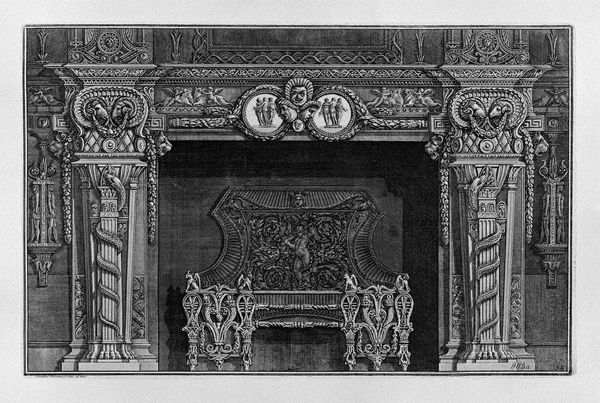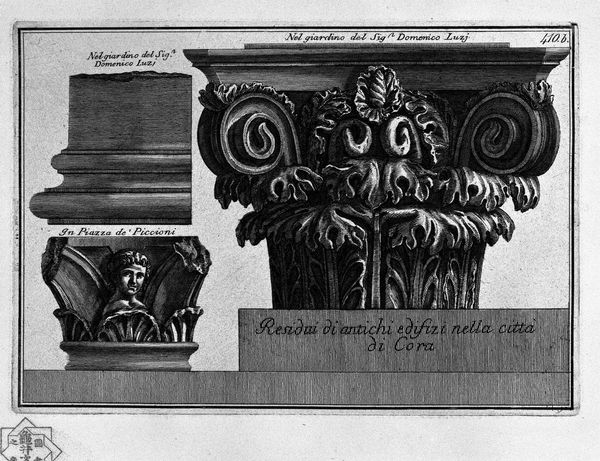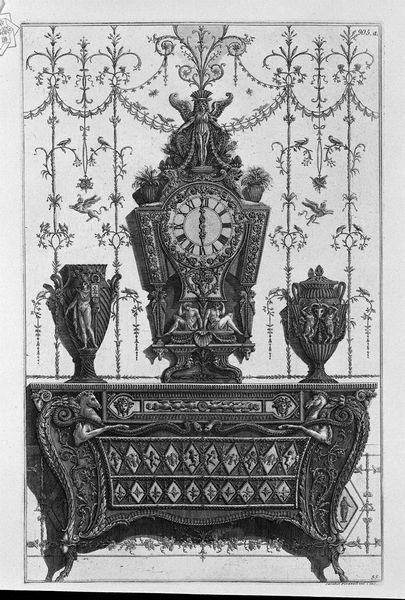
Copyright: Public domain
This is an architectural decoration rendered by Giovanni Battista Piranesi, an etching, teeming with the iconography of Roman antiquity. Observe the sacrificial scene at the top, a tableau steeped in ritual and civic duty. The figures, frozen in their sacred acts, evoke the solemnity and order of Roman society. Below, the ram's head, or bucranium, is a symbol of sacrifice and abundance, often adorning temples and altars. Note how this motif appears not only in Roman art, but also in earlier Greek and later Renaissance decorations, each time adapting to new cultural contexts. The image of the bear is thought to symbolise the wild, untamed aspects of nature, a contrast to the civilizing influence of Roman law. The recurrence of these symbols across millennia reveals how collective memory embeds itself in visual culture. They are not merely decorative, but act as carriers of cultural memory, resurfacing and evolving, and shaping our understanding of the past in the present.
Comments
No comments
Be the first to comment and join the conversation on the ultimate creative platform.
